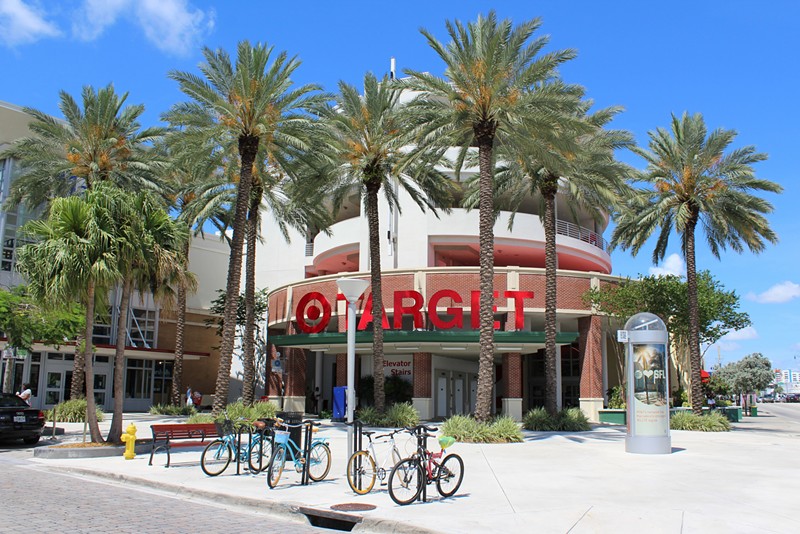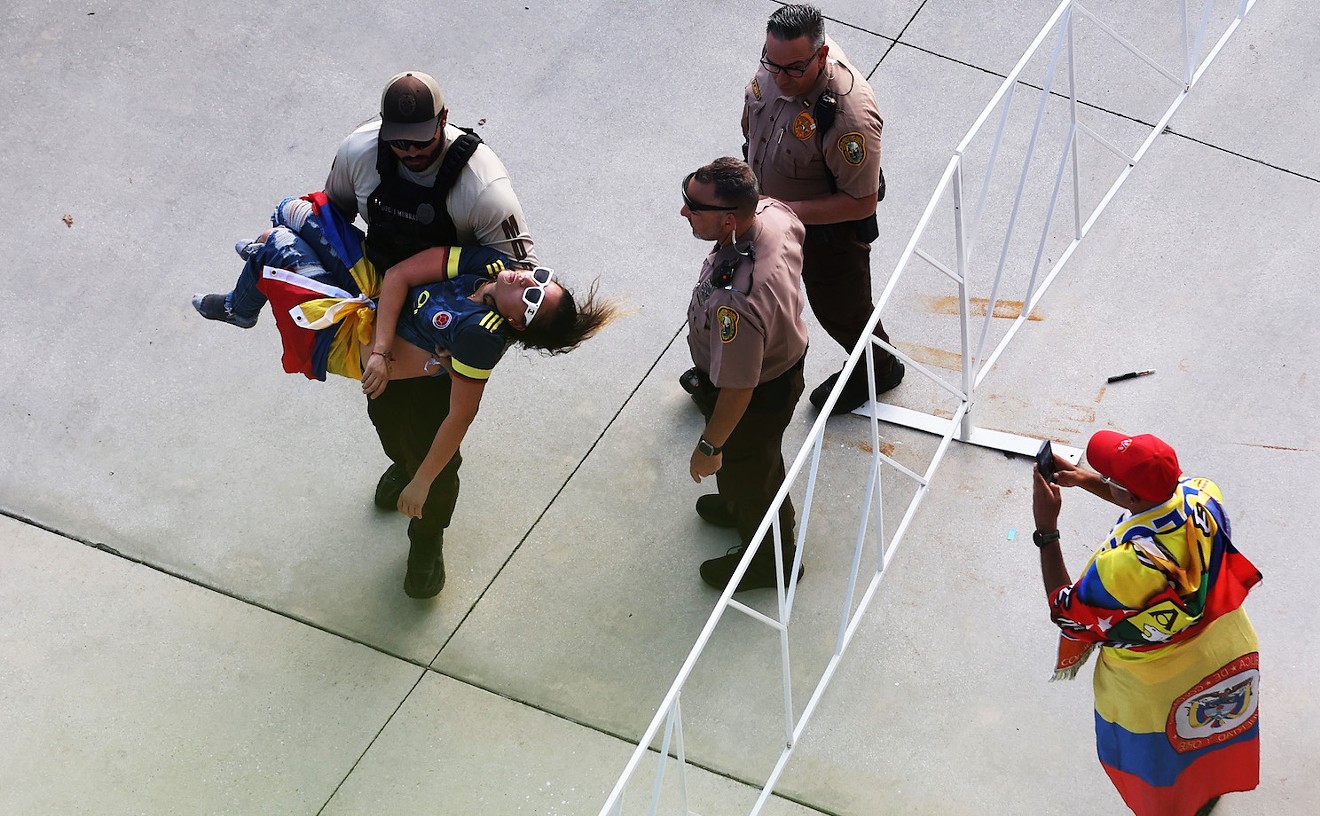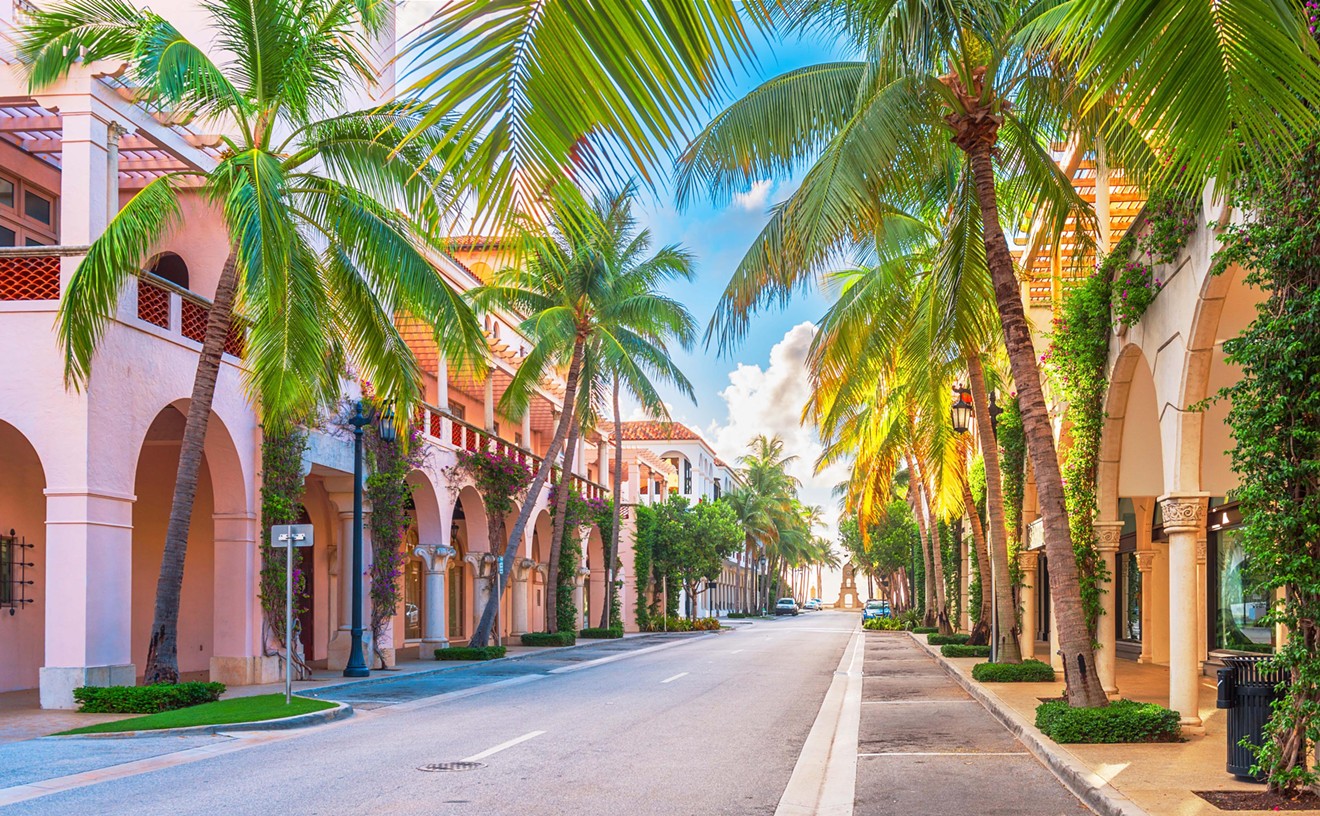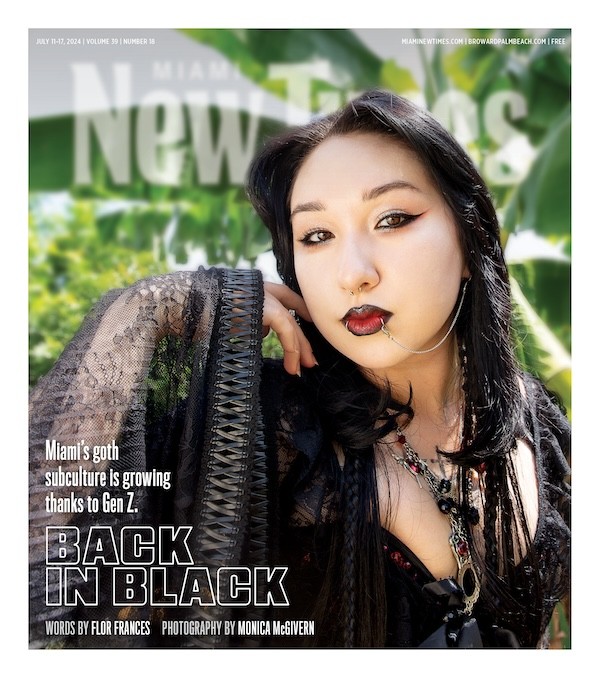Justice-reform advocates on the left and right have been trying to raise that threshold for years, but one massively powerful lobbying group has stood in the way: the Florida Retail Federation, the largest big-retail-business lobbying group in the state. The Federation, which represents Target, Walmart, Publix, Walgreens, Lowe's, Walt Disney World, Best Buy, and virtually every other major retail chain in Florida, has long lobbied to keep the theft-threshold as low as it is — despite the fact shoplifting rates haven't increased in the 48 other states where the felony minimum is higher.
And now, with two different bills filed for the 2019 legislative session to raise the threshold, the Federation has told New Times it will lobby against them. One of the bills would raise the level to $1,000, the other to $1,500. While many other states have similar felony minimums — some have set thresholds as high as $2,500 — a lobbyist with the group, James Miller, said via email last week that the Federation believes these numbers are too high.
"We have concerns about the felony threshold bill you mentioned, specifically that the bill proposes to increase the threshold by an astonishing 500 percent," he wrote.
Last year, the Federation openly boasted of its efforts to kill criminal-justice reform at the state level. Via email, Miller claimed the group was trying to fight organized
"Our past opposition to increases were painted as Draconian,
He added that the Federation's "goal is not to punish or permanently harm first-time offenders or youth by branding them as felons for one unfortunate indiscretion. However, we also believe that the law should deter retail theft and that prosecutors should have discretion to appropriately punish those who exploit the law. We are very sympathetic to the limited resources available to law enforcement, and we want to work with them on prosecuting the professionals without permanently harming those who made a mistake."
The Federation bragged last year about fighting to kill a bill that would have raised the threshold to $1,500. The organization's president, Scott
"Keeping the threshold at its current limit of $300 will help to protect retail by deterring theft, discouraging criminals from stealing larger amounts of merchandise, and reducing the impact of organized retail crime,” he told the news outlet.
The Federation still states on its website that it successfully kept the limit as low as possible last year. The group wrote the following as part of a 2018 legislative-session wrapup:
We are also excited to share the news that FRF was able to keep the felony threshold at its current limit of $300. This will deter retail theft and organized retail crime and help protect our smaller businesses. FRF fought all session to not give criminals a cost of living increase on the backs of retailers.(This is not the only time the Federation has fought laws that would help the state's low-income population: In 2016, the group teamed with Gov. Rick Scott and sued the City of Miami Beach when the town attempted to raise its minimum wage to $13.31 per hour. Municipalities are banned from setting their own wages under state law.)
Importantly, history overwhelmingly shows that harsh theft limits do little or nothing to "deter" crime. The Pew Research Center has found theft rates decreased in the 30 states that raised their thresholds after the year 2000. In 2010, South Carolina even raised its theft-threshold to $2,000 — and the new law did not "encourage" thieves to steal more, Pew found. But the law did have an important impact elsewhere — it reduced prison time for low-level thieves.
"South Carolina policymakers intended the higher threshold to divert people convicted of lower-level offenses away from prison, so Pew also investigated the impact of the change on the state’s prison population," Pew wrote last year. "The study determined that prison admissions for theft offenses declined by 15 percent, and sentence lengths fell a similarly significant 13.6
Via email, Miller disputed this data: He said that, while retail chains that support his group did report fewer thefts, the stores felt that thieves were targeting more expensive goods:In 1986, the last time Florida adjusted its felony theft threshold, a gallon of gas cost $0.93, websites were not yet invented, and for $300 you could buy a VCR. It's time Florida reforms its criminal justice system and adjusts the felony theft threshold. #sayfie #cjreform pic.twitter.com/9m1Fo58AnI
— James Madison Inst. (@JmsMadisonInst) March 5, 2018
Our main focus is strictly on the repeat offenders and those involved in organized retail crime and not the one-time offenders. Yes, we’re aware of the Pew report that threshold supporters like to refer to. However, our member retailers who have stores in other states where the threshold was raised, have told us consistently that even though the number of thefts may have decreased in some states, the amount of the merchandise stolen increased significantly. In fact, our members have surveilled shoplifters using calculators in the store prior to a theft to ensure the price of the items they were planning to shoplift collectively fall under the felony threshold limit. Keeping the value of a single “haul” under that limit means they are quickly back on the street instead of in jail. This shows that ORC criminals understand the new threshold and have increased thefts to meet it. And the 2018 NRF Organized Retail Crime Survey reinforces what we’re hearing from our members on this issue. Make no mistake about it, those who partake in organized retail crime know and understand the ramifications of these thresholds. Clearly, these are not misguided one-time thieves. And they are the ones we are focusing on, not the first-time offenders. By increasing the threshold, you’re increasing the value of items stolen and the more valuable the item, the more value it has on the street in supporting other crimes like I mentioned previously.
But, last year, justice-reform advocates last year were furious with the Federation for taking a demonstrably anti-science stance on theft limits. "This is just about modernizing our criminal justice system and not wasting unnecessary resources incarcerating people,"












